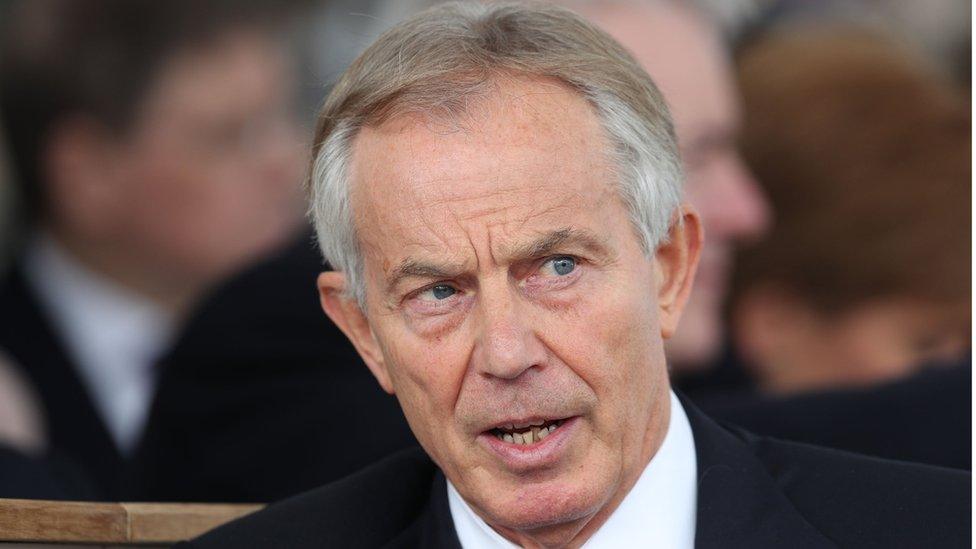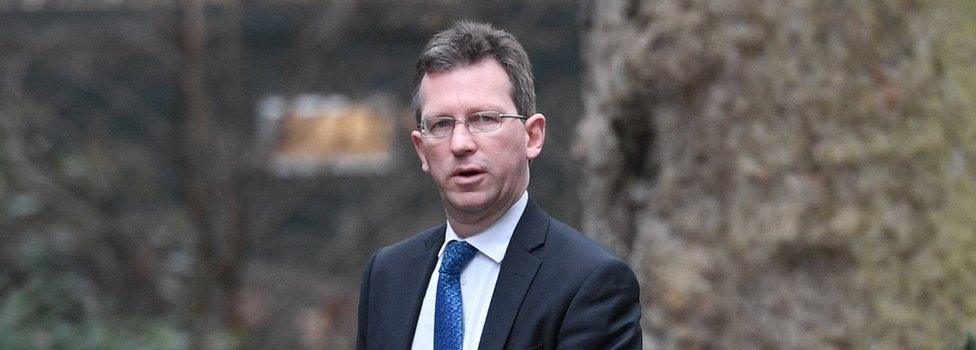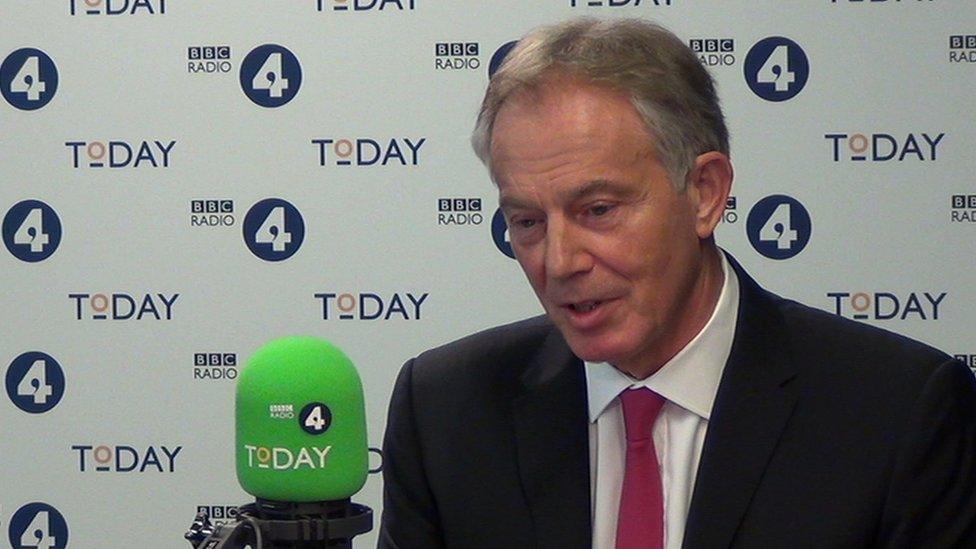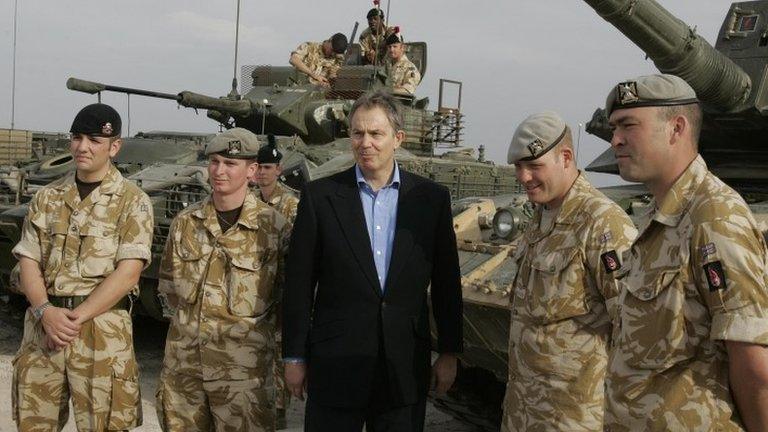Blair prosecution opposed by attorney general, says paper
- Published

A former senior figure in the Iraqi army wants to bring a case against Tony Blair, says the Guardian
The attorney general hopes to block a private prosecution against Tony Blair over the Iraq war, a report says.
The Guardian, external claims that Jeremy Wright QC will step in over the case raised by the Iraqi army's former chief of staff.
The newspaper says it has seen legal papers showing General Abdul-Wahid Shannan ar-Ribat wants to prosecute the former Labour prime minister for the crime of "aggression".
But it says a court ruled in 2016 Mr Blair could not be prosecuted.
The Guardian says the case also wants to bring the prosecution against former Foreign Secretary Jack Straw and ex-Attorney General Lord Goldsmith.
Lawyers who want to pursue the prosecution based their argument on the findings of last year's Chilcot report, which concluded that the UK chose to carry out the 2003 invasion in Iraq "before the peaceful options for disarmament had been exhausted".
Imran Khan, one of the lawyers bringing the case, told the Guardian: "My client wants those responsible held to account and prosecuted using the full force of the law.
"He is baffled as to why it is that despite the Chilcot report making it very clear that the war was illegal, attempts are now being made to prevent those responsible from entering a court, let alone being prosecuted for what they did."
'Implied immunity'
However, the Guardian reports that an application made to Westminster magistrates court last year to summon Mr Blair was refused by district judge Michael Snow.
It said that, as the former head of the government, and as government ministers, the trio had "implied immunity", and that the allegations could "involve details being disclosed under the Official Secrets Act".
Now Mr Wright, who is also the Conservative MP for Kenilworth and Southam, is reported to have formally asked to join future hearings of the case and has called for the attempt to prosecute Mr Blair and his aides to be rejected, according to legal papers seen by the newspaper.
His spokeswoman told the Press Association: "He is seeking to intervene in this case because it raises issues about the scope of criminal law.
"It is not unusual for the attorney general to intervene in these sort of cases in order to represent the public interest."

Analysis
By Ben Wright, BBC political correspondent

Conservative MP Jeremy Wright QC is the attorney general
It seems the attorney general has intervened in this case for two reasons.
First, it's a point of principle. The case is seeking to prosecute people who have acted as ministers in the past and the attorney general believes the current government should stand up for them.
Second, the attorney general's team will argue the crime of aggression does not exist in English law.
The International Criminal Courts Act 2001 incorporates the jurisdiction of the ICC into UK law, but crucially the "act of aggression" clause is voluntary and the UK has not signed up to it.
If this private prosecution does succeed in getting a referral to a higher court this could get politically and legally troublesome for the government.
But the likelihood of a successful prosecution of Tony Blair for the Iraq war still seems an incredibly remote scenario.

The Guardian also reports that Mr Wright believes the case will not stand up because the crime of aggression does not exist in English law.
However, there is a question mark over the assumption, as the newspaper quoted a 2003 memo from Lord Goldsmith, which said: "Aggression is a crime under customary international law which automatically forms part of domestic law."
Mr Khan added: "Everybody, including the attorney general, should welcome this court case.
"It is an opportunity for many millions of people to get justice for something which caused immeasurable damage not just to the people of Iraq but all those others that were affected by these events around the world."
- Published7 July 2016

- Published6 July 2016
